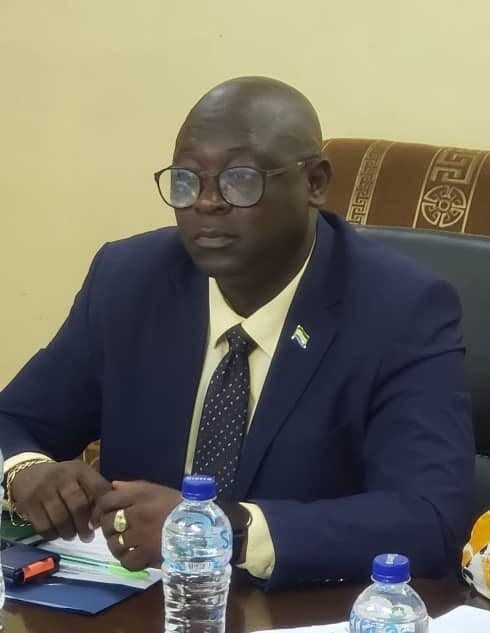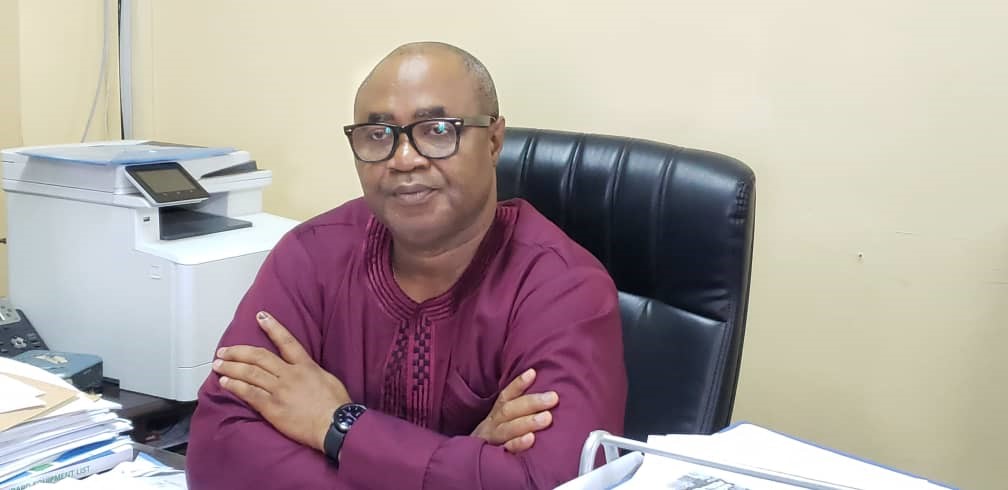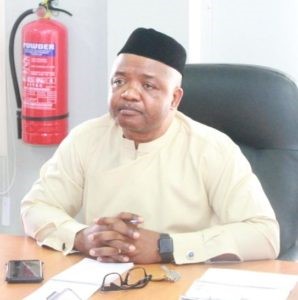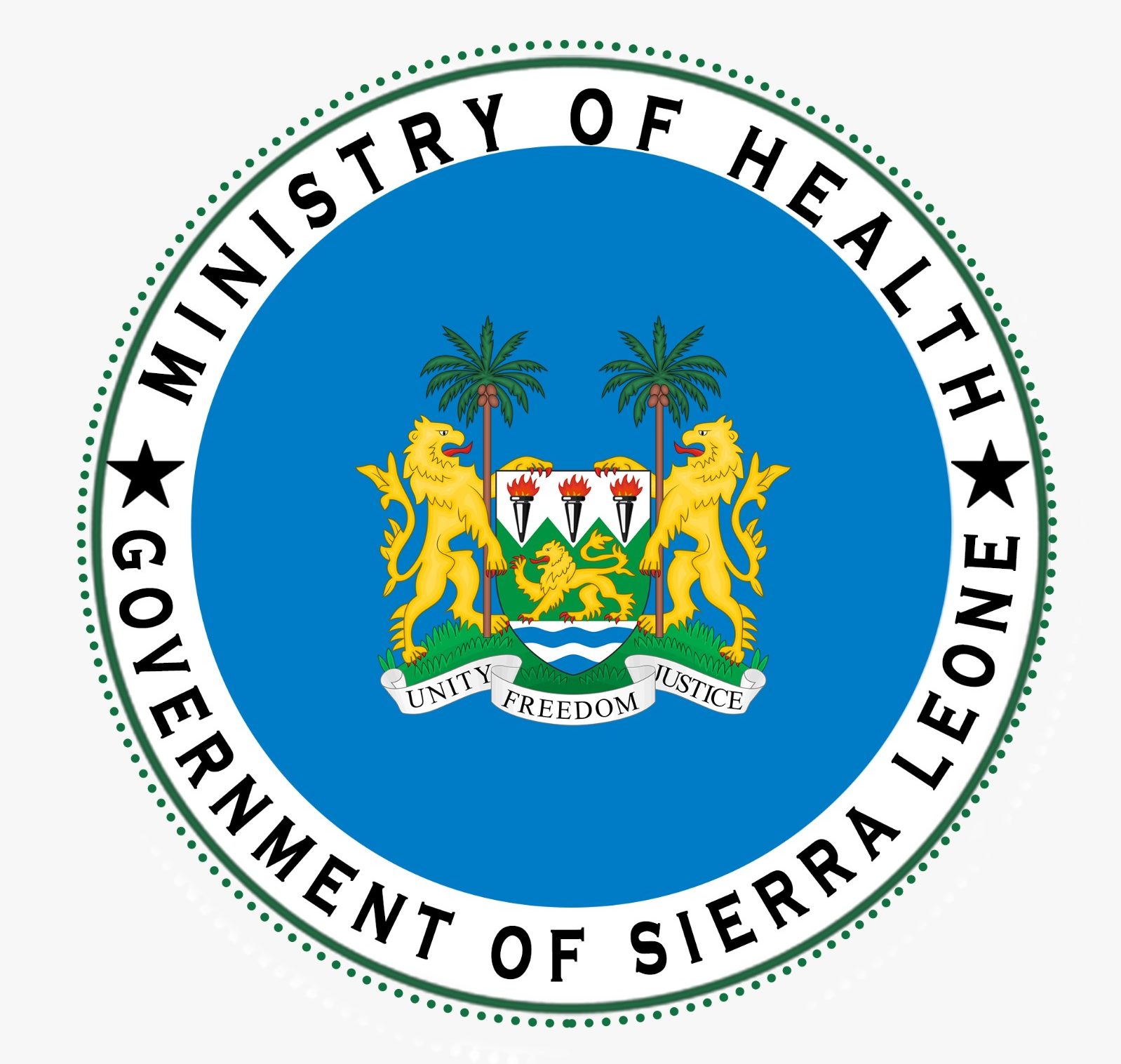
Dr. Austin Demby is currently the Minister of Health for the Government of Sierra Leone. Prior to assuming his current role, Dr. Demby served as the Acting Director of the Office of Global Health at the U.S. Health Resources and Services Administration (HRSA). Dr. Demby began his public health career in 1980 as a research scientist with the Centers for Disease Control and Prevention (CDC). He then went on to become country director of the CDC field station in Sierra Leone (1987-1989) where he studied Lassa fever and other viral hemorrhagic fevers.
He has held research appointments at several institutions, including: Special Pathogens Branch, Virus Reference Laboratory, Central Public Health Laboratory Services, Colindale, United Kingdom, 1990-1993; Division of Pathology, Center for Applied Microbiology and Research, Porton Down, United Kingdom, 1993-1994; Special Pathogens Branch, DVRD, NCID, 1994-1997; and Diagnostic Mycobacteriology, TMB, DASTLR, NCID, 1998-1999.
Following his work in biological research, Dr. Demby became a founding member of CDC’s Global AIDS Program (GAP). Between 1999 and 2006, he led several teams that established GAP program offices in Ethiopia, Rwanda, Tanzania, Zambia, and the Democratic Republic of Congo. Between 2006 and 2011, Dr. Demby served as the Director of the CDC Malawi program, overseeing the HIV/AIDS prevention, treatment and care activities of CDC, and facilitating other major programs funded through two U.S. health agencies, HRSA and NIH, in Malawi.
Between 2011 and 2016, Dr. Demby served as the Director and Deputy Principal for the Presidents Emergency Plan for AIDS Relief (PEPFAR), at the U.S. Department of Health and Human Services. In that capacity, Dr. Demby managed the Department’s $2 Billion global HIV/AIDS portfolio and its implementation by five of the U.S. government’s health agencies.
In 2014-2015, Dr. Demby played a key leadership role in the U.S. Government’s response to the Ebola outbreak in West Africa. He was the first official from the United States Government to conduct a rapid technical assessment of the situation in Sierra Leone and to sound the alarm to the global community. Dr. Demby deployed five times in various capacities to Sierra Leone.
Dr. Demby holds a doctorate degree in Clinical Microbiology from the University of London, England, a master’s degree in public health-epidemiology/biostatistics from the University of Michigan, and a Bachelor of Science degree with honors from Fourah Bay College, University of Sierra Leone.

- As the administrative head and vote controller, provides advice to the Minister on policy matters, coordinating and supervising the administrative activities of the Ministry.
- Facilitate the sending and receiving of Correspondences and Memorandums for inter-ministerial-departmental-agency collaboration.
- Supports the Technical Lead (CMO) of the Ministry through DHRH with human resource functions to ensure compliance with the Public Service Commission (PSC) regulations, Circulars from the HRMO and other policies.
- As the technical lead of the Ministry of Health and Sanitation, serves as national expert adviser to Ministerial leadership and other State-parties.
- Nationally declares and activates the level of Public Health Emergency

- Takes the Final Decision for the deployment of Surge Personnel in or out of Sierra Leone.
- The decisions by the Surge Steering Committee will be approved by the CMO.
- The CMO will convene the PHEMC meeting for proposed decision and update the Minister of Health and
- Acts on the recommendations reached through reviewed request and assessments of best options by Director DHSE for strategic consultations and decisions.
- Provide clearance for the intervention and support of the various technical specialties within the private and public health sector through the guidance of SLMDC, to the Incident Manager.

- Co-chairs sessions of the committee with the Incident Manager
- Provides guidance and direction to implement and monitor compliance with applicable procedures
- Approves all Surge deployment activities in coordination with the PHEMC and Incident Manager
- Provides strategic leadership for all deployment activities in consultation with the SME and Incident Manager
- Regularly updates the CMO who informs the Policy makers and relevant Non-States Actors and State Actors
- Has the legal mandate to administer on all staff related processes, procedures and implement polices as proxy of the Human Resource Management Office.
- The Director Human Resources for Health will acknowledge and facilitate all deployment request, ensuring that the receiving organization is kept informed of progress.
- Serves a a technical adviser on HR processes, procedures and policies to the Director DHSE.
- Liaise with EPR HR to develop ascertain and communicate the needed as against the available specialties capacitated to be deployed.
- With the approval of the PS MoHS, communicate staff movement as and when necessary to the HRMO.


- As head of the largest workforce in the health sector, work closely with the DHRH and PS office to facilitate the deployment of Nurses.
- Coordinate with the National Midwifery and Nurses Board to ensure Licenses and other nursing polices are in place prior to deployment.
- Work closely with the CMO to provide support from the nursing cadre to the Incident Manager as and when needed.
- Serves as finance expert to the committee
- Advise on finance related needs for and during deployment
- Advise on aligning deployment with existing finance regulations
- Advice and support on the retirement of the funds at the end of the deployment
- In agreement with the Leadership of Finance, will advise the Chair of the Committee on all Financial Matters in line with the Public Financial Management Act of 2016.
- If required, train Committee and other Members of staff on financial related issues
- Monitor the execution/implementation of the approved Budget of the Committee
- Performing any other functions as may be specified by the Steering Committee
- Whether the country is to send or receive surge personnel out of Sierra Leone, there needs to be the responsible Ministry and its coordinating departments with the Legal mandate to advice and facilitate all diplomatic channels and means of engagement in collaboration with office of the Permanent Secretary MoHS and the Donor Coordinator Liaison’s office from the Pre-Deployment stage to the Post Deployment Stage.
- Serves as the International Relations expert to the committee
- Provide legal and diplomatic advice on all international deployment (sending or receiving) engagements and decisions.
- Through ‘Note Verbale’ and other diplomatic Correspondences, liaise with the PS’s office MoHS to send and receive formal request and or decisions reached to send or receive personnel from Abroad.
- In collaboration with Immigration department, develop and update SoPs for travelling in and out of Sierra Leone.
- Advise on regulations for international personnel deployment
- Facilitate travel documentation, visas, and work permit processing for international deployments in coordination with other relevant departments in the Foreign Affairs Ministry
- Responsible for ensuring the that there are enabling entry points to personnel from other Countries.Orientation of Surge Personnel on the immigration laws in the CountryGuide and Facilitate visa request by MoHS for all international surge personnel through the Ministry of Foreign Affairs and International Cooperation.
- Ensure that Third country nationals who are exempted from visa applications to Sierra Lone by way of bilateral agreements must travel into the country as graticians.
- Guide and Facilitate a structured lists displaying categories of visa exempted countries by MoHS for timely decision making and express coordination.
- Collaborate with the Ministry of Foreign Affairs and International Cooperation upon receiving visa requests from MoHs who will approve and forward a cover letter with attached credentials of applicants to the Ministry of Internal Affairs and Immigration Department for the processing of gratis visa which will be made available within 48hrs.
- Ensure there is a formal platform where Entry requirements will always be shifted from Normal/Regular to Emergency in order to activate a quick response.
- Advise on human resource capacity development initiatives useful for surge personnel deployment
- Plan and manage programs (Short courses, units/modules) geared towards preparation for capacity strengthening on
- Emergency response situations
- Participatory approach in emergency response by availing expertise information based on facts and figures.
- Encouraging research works that target recurring epidemics and other emerging and re-emerging public health threats under the principles of IHR 2005 with subsequent amendments.
- Analysing and investigate security including Bio-security issues, assessing expected trends, and prioritizing activities.
- Playing an advisory role.
- Making recommendations to the President on matters significant to security related to deployment
- Make recommendations for the development of surge personnel security policies/SOPs.
- Coordinating and integrating work between different MDAs on security related issues concerned with the deployment process
- Coordination and to a greater extent playing oversight roles to advise state institutions
- The ONS National Situation Room will continue to collect, collate, process, and analyze field reports for our superiors for informed decision-making and Presidential Briefings
- Strengthen existing security sector SoPs on an integrated approach in order to curb any outbreak and or disaster incidents and this includes manpower, logistics support, and any other support required.
- Capture the ONS decentralized security arrangement
- Focal Persons in some parts of the country
- Chiefdom Security Coordinators in border chiefdoms
- District Security Coordinators
- Provincial Security Coordinators
- National Office
- ONS will continue with its specialized committee meetings (Chief Security Committee meeting, District Security Committee meeting, Provincial Security Coordination meeting, Joint Intelligence Committee, and the National Security Committee Coordination Group meeting)
- Provides technical support and share expertise information to the committee on all disasters/disease outbreaks from Animals or Plants and or disasters/diseases outbreaks affecting Animals/Plants
- Assist with Animal and Plant Specialists to response to emergencies concerned with or affecting Plants and Animals
- Support with knowledge and human resource expertise in a bid to build preparedness to mitigate future events – lessen the impacts of disasters by assisting DHSE, state and local agencies and communities prior to disasters.
- Conduct environmental impact assessment and advise on systematic effective and efficient measures to curtail or prevent further damages, or as the case may be, advise on relocation and resettlements to prevent further human or animal impact.
- Promote sustainable and resilient rebuilding – use EPA’s expertise to inform communities, state and partners about rebuilding for the long-term viability of regions, people, economies and natural ecosystems.
- Apply EPA knowledge – provide EPA’s expertise to other multi-sectoral agencies, state and communities in areas of EPA responsibility such as drinking water and wastewater infrastructure, air quality, and hazardous materials clean-up.
- Streamline Government action – work with MoHS and partner agencies to streamline Government oversight to efficiently fulfill statutory, permitting and/or enforcement requirements in a timely fashion.
- Partner with MDAs to actively engage vulnerable and overburdened communities so they can meaningfully participate and have their issues addressed during recovery operations and planning.
- Support the DHSE with knowledge and human resource expertise in a bid to plans for anticipated events (Flooding, Storms, Fire etc.).
- Collaborate with its transport Agencies to Detect, verify, and monitor roadway conditions.
- Assesses transportation system damage and capacity.
- Identifies and manages public safety lifeline routes.
- Conducts traffic control strategies to support emergency response and evacuation.
- Manages detours and evacuation routes.
- Dispatches maintenance and support vehicles.
- Coordinates with local transportation agencies and inform them of emergency and safety protocols.
- Develops event-specific operational strategies to address response phases.
- Provides warnings and public information/traveler alert requirements.
- Stabilizes traffic demand in the affected area.
- Shares data with transport agencies, law enforcement, and DHSE.
- Participates in joint training.
- Provide regular training for drivers through SLRSA/MTA.
- Deploy standby vehicles in each district in the event of natural disasters ie, flooding, storms, fire, etc
- MoHS to liaise with MTA for vehicle deployment during such occurrence
- *MTA/SLRSA will assist in mapping routes in those affected areas to ensure movement of people and vehicle
- MoHS makes vehicle request to the ministry of Transport & Aviation through the office of the secretary to the president
- That a specialized agency is hired to service and maintenance vehicles and other related equipment regularly so to fit in for purpose
- MTA help in sensitizing the public through transport stakeholders in respect to emergencies/outbreak
- Develop routine maintenance schedule for vehicles and equipment through SLRTC, SLRSA and drivers’ union.
- Equip fires force offices in the district with more sophisticated vehicle

